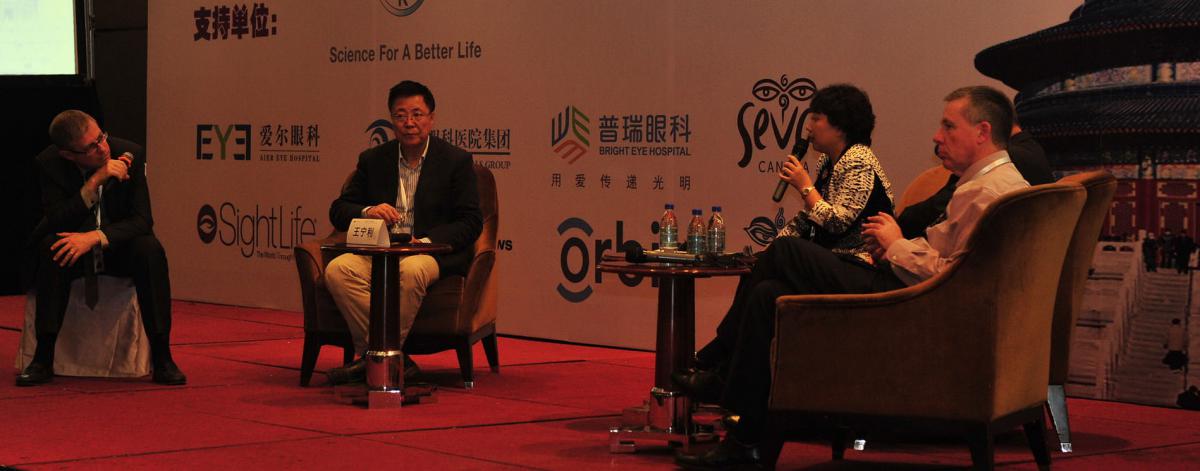Join a powerful, unprecedented alliance for better eye health for all.
Join IAPB-
Choose an alternate language here

Held in association with China’s National Blindness Prevention Committee and supported by members of the IAPB China Committee, the China Day sessions on 13 October featured new insights on ways to manage avoidable blindness. Ms Xiang Hu, asenior representative from the National Health and Family Planning Commission (China’s health ministry) presented on the government’s recent efforts, including work to increase cataract surgical volumes, eliminate trachoma as a public health problem, a major prevalence survey and an early draft of the national plan for 2016-2020. With very exciting news, Xiang Hu said the government was considering a national response to reduce the prevalence of uncorrected refractive error. Studies have found that myopia is responsible for more than 90% of poor vision among children in China, and that more can be done to ensure school students have access to regular eye screening and quality spectacles.
Xiang Hu, along with Prof Ningli Wang (Chair of China’s National Committee), answered questions from participants on issues such as medical aid in remote areas, building primary eye care and leveraging private and non-government forces for eye health in China.
Findings from a recent study on blindness and visual impairment conducted in 9 provinces found that the prevalence of blindness had decreased by 25% on figures from 8 years ago. China’s government led the study, with financial support from Orbis and Bayer. Over recent years, China’s national cataract surgery rate (CSR) has increased steadily. In 2010, the CSR was just 915; in 2014 it was estimated to be 1425. The growth is commendable, but China still lags behind many neighbouring countries in surgical coverage and productivity. Disparities remain between many urban and rural communities; however, health insurance coverage in China is broad and covers almost the entire population. The main government schemes offer reimbursements for cataract surgery and other treatments, while some out-of-pocket costs exist for poor patients.
• Cataract: Reach out with screening and provide high-quality, low cost surgery for all.
• Refractive error: Free glasses open up a world of educational opportunities for a child.
• Diabetes: Treatment begins before vision declines, and continues throughout life.
The great success of China Day was a credit to members of the IAPB China Committee. The Committee was only established this year, and has already demonstrated the benefits of working together. Next year committee members will continue to share knowledge at the Annual government-NGO Coordination Forum, in the Chinese version of the Community Eye Health Journal, workshops and through other activities to work towards Universal Eye Health.